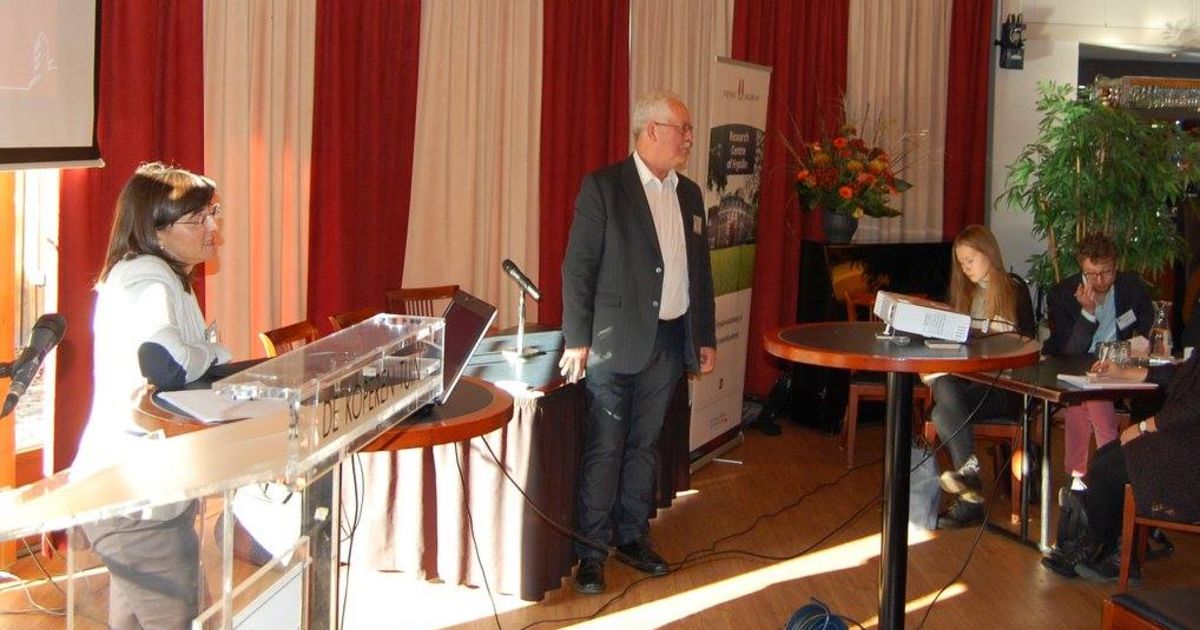
The effects of migration on minority languages - symposium
11.11.2016The Mercator Research Centre of Multilingualism and Language Learning organised a symposium in Ljouwert/Leeuwarden, the Netherlands, on 11 November 2016. The topic of the symposium was: “The effects of migrations on the position of minority languages”.
At the symposium, experts and practitioners from across Europe gave their perspective on the impact that a strong influx of people with a different background can have on society, and in particular on position of minority languages. In many cases the position of minority has been under pressure already before the refugee crisis. A significant rise in the number of pupils with foreign mother tongues creates serious challenges both in language learning, but also in classroom dynamics.
A number of experts told about their perspective on this issue, and on ways how to deal with this situation of “superdiversity” in many classrooms. In bilingual or trilingual schools, such e.g. in the region of Fryslân (the Netherlands) there has been little attention so far for the consequences of this new influx of migrant children on the education in the minority language.
The dominant idea is still, that an increase of migrant pupils has a detrimental effect on the minority language. That this does not necessarily has to be the case was shown by examples from a bilingual school in Klagenfurt (Austria) and a school in Dublin (Ireland), where more than 80% have a different home language than English or Irish. According to David Little (Trinity College Dublin), the use of the home languages of the pupils at a school in Dublin and the respect and attention for languages in general led to very good results in Irish-language proficiency.
Roberta Medda (European Academy Bolzano) told the audience about the role of regional citizenship in several regions of Europe. By learning the language of the region, it is possible for migrants to blend into their new home region. In regions such as Catalonia and the Basque Country it is no longer necessary to have a Catalan or Basque family background to be part of the regional people. This helps to create a sense of belonging.
In the region of Fryslân school classes increasingly have children from different language backgrounds. According to Joana Duarte (University of Groningen), solutions have to be found to facilitate this super-diversity, for example by involving the parents in language education as well, and by using the home language in the learning process. According to Alex Riemersma (NHL University) this is much better than adhering to the monolingual ideology that long reigned in Netherlands or the one-sided focus on learning English of today.
More information:
Mercator European Research Centre for Multilingualism and Language Learning

Pressemitteilungen
- Neues Sekretariat im polnischen Parlament unterstützt nationale und ethnische Minderheiten
- FUEN fordert Berücksichtigung der ladinischen Sprache bei den Olympischen Winterspielen 2026
- FUEN fordert UN-Sonderberichterstatter auf, sich für einen kohärenten EU-Rahmen zum Schutz von Minderheiten einzusetzen
- Die FUEN wünscht Ihnen ein friedliches Weihnachtsfest, erholsame Feiertage und einen guten, zuversichtlichen Start ins neue Jahr!
- FUEN fordert die EU zum Handeln gegen systematische ethnisch begründete Landenteignungen in der Slowakei auf
- Women of Minorities-Konferenz in Budapest fordert strukturelle Veränderungen für die gleichberechtigte politische Teilhabe von Frauen aus den Reihen nationaler Minderheiten
- FUEN-Präsidentin Olivia Schubert beim UN-Forum für Minderheitenfragen in Genf
- „Laboratorium des Friedens“: 28. Seminar der slawischen Minderheiten in der Europäischen Kulturhauptstadt Gorica/Gorizia
- Equality in Political Participation and Representation: Drittes „Women of Minorities“-Treffen findet in Budapest statt
- FUEN-Arbeitsgemeinschaft Bildung diskutiert Herausforderungen und Zukunftsperspektiven des Minderheitenunterrichts in Europa














